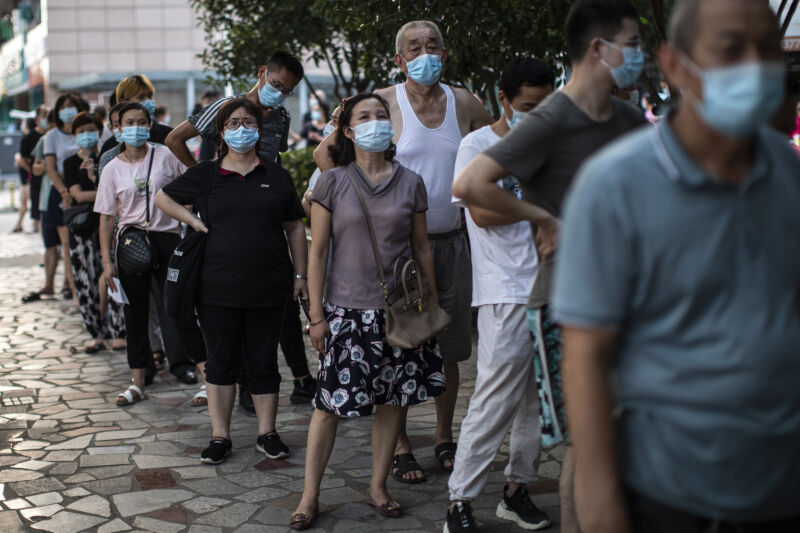
After going a full year without any locally spread cases of COVID-19, the city where the coronavirus pandemic first began has now detected its first cases involving the delta variant.
Officials in Wuhan, China, on Monday confirmed three delta cases, prompting them to order coronavirus testing for all 12 million or so of the city’s residents.
“To ensure that everyone in the city is safe, city-wide nucleic acid testing will be quickly launched for all people to fully screen out positive results and asymptomatic infections,” Wuhan official Li Qiang said at a news briefing, according to the Associated Press.
In addition to the massive testing campaign, officials sealed off parts of the city and restricted some domestic travel.
The last locally spread cases of COVID-19 in the city were detected in May of 2020, following intense lockdowns to try to control the spread.
Since then, China as a whole has been relatively successful at keeping the coronavirus at bay. On Tuesday, China’s National Health Commission reported 90 new cases among the country’s roughly 1.4 billion people.
The new cases in Wuhan are thought to be linked to a delta outbreak that began in the eastern provincial capital of Nanjing in late July and has since spread to other cities. Officials believe the delta cases were introduced into the country via a flight from Russia. The first to get sick in the outbreak were cleaners disinfecting airplanes at the Nanjing Lukou International Airport. With the 90 cases reported Tuesday, the country has tallied around 400 local COVID cases since the outbreak began in Nanjing.
On Monday, the Health Commission reported that 1.66 billion doses of COVID-19 vaccines had been administered to date. However, two widely used Chinese vaccines that rely on inactivated viruses have not been found to offer as high levels of protection as seen with the mRNA vaccines. Many countries that have relied on Chinese vaccines have resorted to offering third doses as boosters. In April, the head of the Chinese Center for Disease Control and Prevention, George Gao, was quoted as acknowledging that the efficacy of China’s vaccines is “not high.”
https://arstechnica.com/?p=1784801

